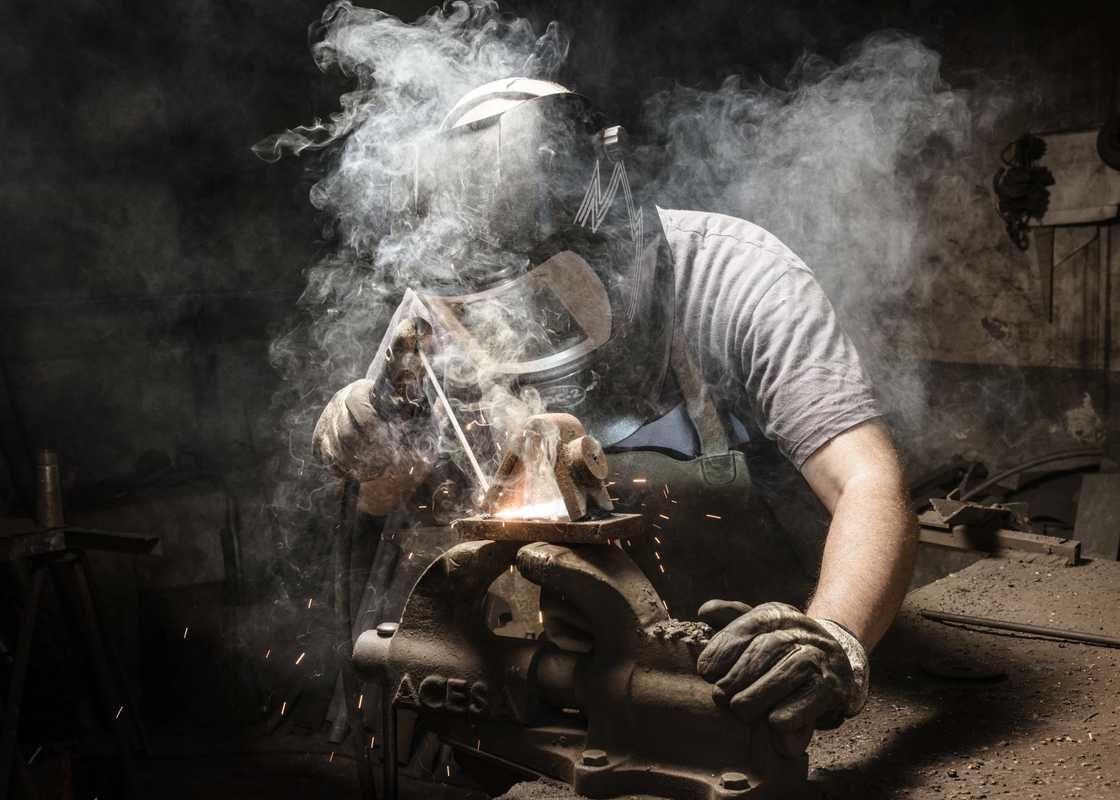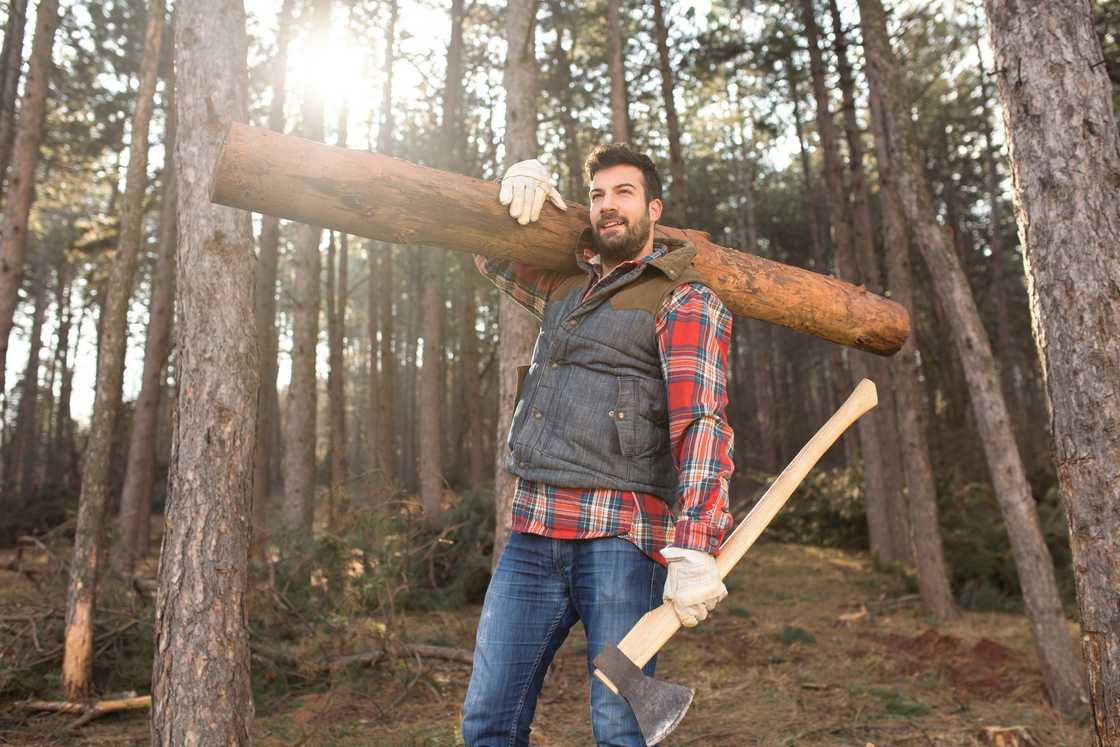Best paying jobs in basic industries: Top 15 careers to consider
Basic industries produce raw materials used to manufacture goods. Examples include the iron and steel industries, extraction and the consumer goods industries, among others. But with such a broad career spectrum, which are the best-paying jobs in basic industries?

Source: Getty Images
TABLE OF CONTENTS
To determine the best-paying jobs in basic industries, we analysed industry trends, job roles and responsibilities, skills and qualifications required, experience, and supply and demand. Surveys and data from government sources like the US Bureau of Labour Statistics and job portals like Indeed played a significant role in this research.
The best-paying jobs in basic industries
How many jobs are available in basic industries? According to the US Bureau of Labour Statistics, there are over 8.8 million job openings for all industries as of April 2024. Of all these job openings, over 7.9 million are private industries, which many basic industries fall under.
Here are basic industries examples and their salaries:
Jobs | Average salary range (per year) |
Miner | $98,800 |
Chemical engineer | $95,517 |
Rigger | $74,740 |
Geologist | $73,285 |
Machinist | $71,157 |
Carpenter | $61,477 |
Animal caretaker | $49,753 |
Metal worker | $48,987 |
Welder | $47,807 |
Chemical technician | $47,336 |
Forklift operator | $42,497 |
Farmer | $39,912 |
Fisherman | $37,954 |
Production operator | $35,108 |
Logger | $30,862 |
Miner
- Average salary: $98,800
The mining industry is a multibillion-dollar enterprise that provides the world with materials such as coal, precious metals, iron and gravel. Mining jobs in oil and gas can be particularly lucrative, with miners earning decent salaries.
The unique job caters to multiple skill sets and interests and offers various roles like engineering, project management, geology, environmental specialism and data analysis.
Chemical engineer
- Average salary: $95,517
Chemical engineers use math, physics, biology and chemistry to produce food, pharmaceuticals, fuel, chemicals and other products. They plan and test byproducts, design equipment and processes for large-scale manufacturing and direct facility operations. Chemical engineers can also research business services, biotechnology and life sciences.
Rigger

Source: Getty Images
- Average salary: $74,740
A rigger is responsible for fastening heavy loads to transportation equipment and controlling, supervising and directing the equipment's operators. Riggers use pulleys, cranes and winches to move heavy materials and equipment around the worksite.
In addition to oil and gas and construction sites, every other industry that utilises cranes with large tonnage capacity requires riggers.
Geologist
- Average salary: $73,285
A geologist studies the processes that take place on the earth. Geologists can examine the earth's materials or processes to prepare vulnerable areas for geological events. For example, geologists may study volcanic eruptions or earthquakes to prevent people from building important structures in certain regions.
Geologists also regularly study the impact of rock formations on their surrounding environments.
Machinist
- Average salary: $71,157
A machinist is a skilled professional who works in trade industries and uses their hands or a machine to create or modify metal, plastic or wood. Machinists make, alter and repair mechanical instruments and set up and operate various tools to produce precision parts. Most machinists work with metal and use machines such as lathes and grinders.
Carpenter

Source: Getty Images
- Average salary: $61,477
Carpenters are construction professionals specialising in building, repairing, and installing building frameworks and structures from wood and other materials. Experienced carpenters can progress to become supervisors, project managers or team leaders and earn a higher salary.
Animal caretaker
- Average salary: $49,753
An animal caretaker is responsible for the well-being and daily care of animals. Animal caretakers work in various settings, such as animal shelters, veterinary clinics, zoos, aquariums, research facilities, and farms. Their primary duty is to ensure the animals' health, safety, and proper care under their supervision.
Metal worker
- Average salary: $48,987
A metalworker specialises in working with various types of metals to fabricate, assemble, and repair metal structures and components. Metalworkers use manual and automated tools and machinery to cut, shape, and join metal pieces. They work with metals such as steel, aluminium, iron, copper, or brass to create various items, from small parts to large structures.

Read also
What is the most expensive mattress? The top 15 most expensive mattresses in the world ranked
Welder

Source: Getty Images
- Average salary: $47,807
Welders are construction specialists who use specialised equipment to fuse two or more pieces of metal using intense heat. They are also responsible for shaping and polishing the metal after it has been joined together and ensuring the welded piece adheres to assembly and safety protocols.
Certified welders can work as brazers, solderers or cutters and commonly work with infrastructures like bridges, highways and buildings.
Chemical technician
- Average salary: $47,336
Chemical technicians monitor and adjust processing equipment at manufacturing facilities. Chemical technicians use laboratory instruments and techniques to help scientists analyse the properties of materials. They set up, operate, troubleshoot and maintain laboratory instruments and equipment.
Forklift operator
- Average salary: $42,497
A forklift operator is a manufacturing and transportation professional who uses a forklift to load and unload materials and equipment in a warehouse environment. The forklift operator is responsible for the physical manoeuvring of the equipment, as well as some more extensive maintenance, safety and organisational functions.
Farmer

Source: Getty Images
- Average salary: $39,912
Farmers produce crops, dairy products and poultry. They typically operate family-owned farms, responsible for everything from purchasing and planting seeds to evaluating market trends and inspecting land and machinery.
Most farmers are also successful businesspeople, overseeing daily responsibilities like staffing, financial tasks and sales and marketing. Farmers work closely with labourers and agricultural brokers.
Fisherman
- Average salary: $37,954
A fisherman uses various fishing equipment and techniques to catch fish and marine life to be sold for food or used as bait. In this role, you use nets of all sizes, traps, and fishing lines to catch the fish and then use complex machinery to hoist fish loads onto a boat.
Production operator
- Average salary: $35,108
Production operators are responsible for operating and maintaining machinery, ensuring production processes run smoothly, and meeting production targets while adhering to safety and quality standards. They often work in fast-paced environments, requiring them to be alert and focused for extended periods.
Logger

Source: Getty Images
- Average salary: $30,862
Loggers cut trees with hand-held power chain saws or mobile felling machines. Logging workers harvest thousands of acres of forests each year. The timber they harvest provides the raw material for countless consumer and industrial products.
Is basic industries a good career path?
Yes, it is a good career path. It offers stability and security, has good salary and benefits, and provides skill development and opportunities for growth.
What is an example of a basic industry?
Basic industry examples include iron, steel, metallurgical, milling, and chemical industries.
Basic vs non-basic industry
Basic industries, like car factories or fruit orchids, bring in money from outside the community, while non-basic industries, like local hospitals or hair salons, recycle money within the community.
What is the definition of basic industry?
Basic or essential industries supply their products or raw materials to manufacture other goods, e.g., iron and steel, copper smelting, and aluminium smelting.
Above are the best-paying jobs in basic industries. They comprise jobs in the petroleum industry, geoscience, health safety and environmental sciences, synthetic chemistry and data sciences.
Yen.com.gh recently published an informative piece about the best jobs for introverts. There are plenty of jobs where you can work alone. These jobs are ideal for people who prefer to work alone and independently.
From freelance writing and graphic design to web and software development, the list of jobs where you work alone is extensive. But which other jobs offer the comfort of working alone and earning decent pay?
Source: YEN.com.gh







